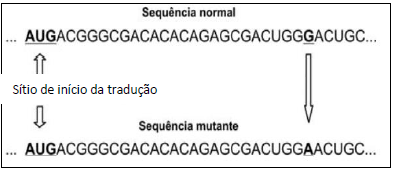RIO DE JANEIRO — Pope Francis on Thursday
delivered some of his most politically provocative
remarks since his papacy began this year, hopping
from his popemobile to walk through a slum in this
city before urging young people to fight against
corruption, a leading grievance behind the huge
street protests that shook dozens of Brazilian cities
in June.
“Do not grow accustomed to evil, but defeat
it,” Francis said at the favela, or slum, of Varginha,
in an area that has commonly been known here as
the Gaza Strip for its gun battles and drug trafficking
in the past. “Do not lose trust, do not allow your
hope to be extinguished,” he added, acknowledging
that it was common for some to “grow disillusioned
with news of corruption.”
By singling out corruption in a folksy visit to a
Brazilian favela on his first trip abroad as pope,
Francis, an Argentine-born Jesuit, emphasized his
aim to refocus the Roman Catholic Church on the
neglected margins of society, especially in Brazil and
other parts of Latin America where the popularity of
evangelical churches has surged among the poor in
recent decades.
In a nod to the Brazilian political authorities
who have warmly welcomed him, Francis also
praised the government’s antipoverty programs and
did not specifically mention the anti-establishment
protests in Brazil. But he did critique Rio de Janeiro’s
so-called pacification project in the city’s slums, in
which security forces assert control over lawless
areas.
“No amount of pacification will be able to last,
nor will harmony and happiness be attained in a
society that ignores, pushes to the margins or
excludes a part of itself,” the pope said in Varginha,
a slum that has recently been subjected to
pacification. In a remark that could resonate in Latin
America and in the United States, which is also
grappling with the widening disparity between the
haves and the have-nots, Francis said that a society
“impoverishes itself” by perpetuating such
inequality.
Care for the poor and marginalized is an
integral part of Catholic teaching, and a concern of
many popes and encyclicals, including those by
Francis’ predecessor, Benedict XVI. But Francis has
made it a hallmark of his young papacy, telling
journalists in Rome days after his election, “How I
would like a church that is poor and for the poor.”
He has demonstrated that ideal by living relatively
humbly as pope: in a communal guesthouse rather
than the opulent papal apartment, wearing a
pectoral cross of iron instead of gold, flying
commercial. He recently told priests that they should
not drive fancy cars, and he has traveled around Rio
this week in a compact Fiat.
“He is helping to wake people up,” said Natalia
Morais, 21, a nursing student from Minas Gerais
State who traveled to Rio to see the pope as part of World Youth Day, a conference attended by
hundreds of thousands of Catholic youth. “When the
pope talks, political leaders listen, and that’s what’s
needed in Brazil, where our protests are about their
corruption,” Ms. Morais said.
Reaching beyond Brazil, Francis told
Argentines who came here for the conference that
“the church must be taken into the streets” in a
struggle against complacency. “Stir things up, cause
confounding, but do not diminish faith in Jesus
Christ,” he said in Spanish.
In each of Francis’ public appearances, he has
been accorded a rock-star reception. On an
uncommonly cold and rainy morning, hundreds of
residents lined the narrow, muddy sidewalks of the
Varginha favela to glimpse the first pope from the
Americas, who obliged by stopping often to touch
and bless people.
Many onlookers had made their own shirts to
commemorate the event, with a photo of Francis.
Others draped themselves in Brazilian flags and
waved banners bearing his image. Residents darted
in and out of their homes, checking their televisions
and radios to learn the pope’s whereabouts and
calling the information out to their neighbors
standing on wet rooftops to get a better view.
Sônia Curato, 48, a manicurist, said the
pope’s visit was different from that of other leaders.
“Politicians come all the time. They make promises
and leave,” she said. “He is a very simple person.
You can tell that. He has charisma. He speaks to the
people, doesn’t like going around in an armored
car.”
By Simon Romero and Taylor Barnes
Published: July 25, 2013
www.nytimes.com





